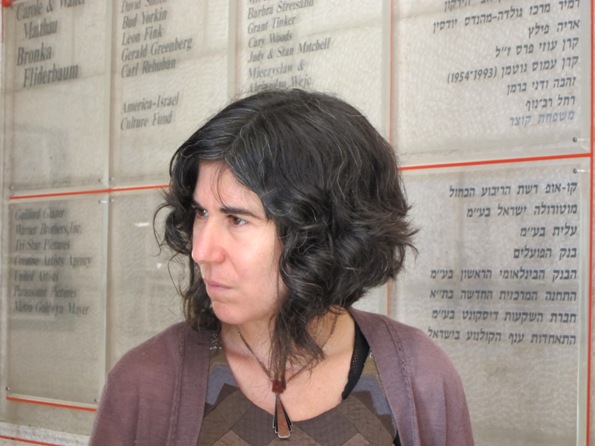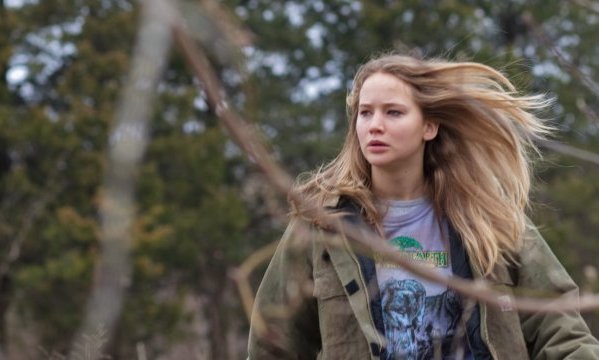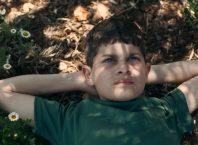
“As an American filmmaker in the American filmmaking tradition it is very hard for me to leave a film without some kind of hope, and yet I was trained and taught by someone who comes from the Russian tradition and he can deal with the nihilism, he can deal with the protagonist dying at the end…Obviously we don’t want to be having a stamp that says ‘Have a nice day’ when it’s not a nice day and at the same time I do want to believe someone demonstrating that kind of resolve in her life has a chance to build something,” said independent filmmaker Debra Granik in a conversation with the audience after the screening of her film Winter’s Bone, sponsored by the Jerusalem Cinematheque Israel Film Archive in collaboration with the International Women’s Film Festival, Israel and the U.S. Embassy, Tel Aviv.
Granik was in Israel from August 2 – 10, 2011 as part of a program to promote “Women in Film”, sponsored by the U.S. State Department. In person, Granik expresses many of the qualities that have given her films – Down to the Bone (2004) and Winter’s Bone (2010, based on the novel by Daniel Woodrell) – a distinctive look and feel. Unsparing in the open expression of her opinions, Granik speaks with a warm and relaxed manner, her strength of vision built on a foundation of meticulous observation. Although Winter’s Bone follows Ree Dolly, a young girl living in excruciatingly difficult circumstances, through a quest that tests the limits of her endurance, one of the striking elements of the film is its beauty. A young girl’s hands cutting potatoes into a frying pan, a tangle of branches against the sky, the sound of water; attuned to nuances, the beauty lies in the act of observing, the underlying belief that there is something worth getting to know.
Screenings of Winter’s Bone at the Jerusalem, Tel Aviv and Holon Cinematheques were followed by Q & A sessions with the audience. Granik displayed unflagging energy throughout a week in Israel that included workshops for students at the Sam Spiegel School in Jerusalem and Minshar in Tel Aviv, a tour of the Ma’aleh Film School in Jerusalem, travel to the West Bank to promote women in film and meetings with Israeli filmmakers, from high school students participating in a greenhouse program to industry professionals.
In a meeting with Israeli filmmakers at the Tel Aviv Cinematheque, moderated by Ruth Lev Ari, Granik first wanted to hear from each one about his or her background and interests in film, taking time to discuss their current projects. When Lev Ari informed Granik that many in the group had recently returned from Hollywood in the context of the Tel Aviv Los Angeles Partnership, Granik unhesitatingly launched into an extemporaneous speech, “I operate exclusively outside the industry. I feel conflicted about the results… I remove myself from that. It’s toxic, I feel suffocated. It ignores most of the country… This system exploits this mega product and sometimes the mega product doesn’t have any soul in it. Sometimes it does, and I love it when a big film comes out that actually tries to talk about something…But a lot of these romantic comedies that make one definition of what a beautiful woman looks like – look what we’ve done, we’ve made monsters! People that cut their face and rearrange it – what is this?! It makes me not want to cry, but leave the country…In my lifetime I’m so excited to see that a woman over forty can be filmed in the United States without her being a witch or a shrew or someone’s grandmother. I love that they’ve allowed some women to have wrinkles. I want to make films with only women over forty because do women become unmentionable after 40? There’s a lot of censorship that comes out of the West Coast system that denies a lot of people’s lives.”
When Lev Ari asked Granik to discuss her background and approach to film, Granik smiled, “Well, I’ve already kind of divulged my political leanings.” Cutting through the the façade of formality often found when famous (Winter’s Bone won the Grand Jury Prize for Dramatic Film at Sundance and received four Oscar nominations) directors address audiences, Granik’s openness goes a long way towards explaining her success in eliciting the cooperation of such a closed community as the one depicted in Winter’s Bone. Her honest presentation – this is who I am – lends credence to her expressed desire as a filmmaker: I’d like to learn more about you.

There is a close connection between Granik’s two feature films and documentary films, both in their close observation of real people, situations and environments, and in the way the film allows the story to reveal itself. Granik said that she is currently working on a documentary, which she describes as “a portrait of a human being.” Acknowledging that there is a risk in making a film in which, as she says, “there’s no plot” Granik’s comments on the project perhaps contain the key to her raison d’être as a filmmaker, “Will anyone care? Will anyone be interested? Will anyone have the patience to learn about the different aspects of this person? and yet it’s visually so strong for me, his life and his visual world is different enough from mine that it taps into my essential pleasure of filmmaking which is: Oh my God, your life really is so different from mine! I was born on one path – middle class, Jewish American person on the East coast of the United States – that is one specific path. What happens if I go to the heartland, of this big, big country that I live in, and I’m in the Bible Belt? And I don’t know if this person is going to like me because I’m a Jew or not and I don’t know if am I going to be freaked out by their extreme Christianity…What’s going to happen when this person and I meet? But for whatever reasons, I like him. I like him very, very much and I care about his life … I guess that’s my yearning, to see how many scenes in his life I can try to record and at the end of this collection of scenes you’ll be introduced to someone that you’ve gotten to meet or something about the way he tells his story will provokes you to think about something… so thinking or feeling, if we do that in a film, we’re good. If we do both it’s even better.”
Later, talking about the experience of making Winter’s Bone, set in the Ozark Mountains, and filmed on location in people’s homes, Granik said, “It’s the house of a poor American in rural America, and the house is not attractive. The house is very small and there’s things in the front yard. And it’s very easy for a lot of Americans who live on the coast, a lot of Americans who have money, to drive by a house like this and use a really mean word and say: ‘Oh God! White trash,’ you know? Or they might say: ‘God, how come those people can’t clean up their yard? Are they lazy? Are they slobs?’ There are so many negative assumptions, and I always say: What happens if you stop the car and you get out? What would happen if the girl or boy or woman inside that house would come out and we would get to know them? What would happen? What would you find? You would find many different houses, many different lives. There’s a little bit of hope in the world, you stop in front of someone’s house and the person is different than you thought. This story appealed to me, this girl who was different from what I thought, because when I read about her I could tell I cared about her. I cared because I care about anyone who is trying to survive… to protect a few small things, a house, a kid.”
Generous with her words, time and attention, there is much to learn from Granik’s generosity of vision as a filmmaker and as a person.





